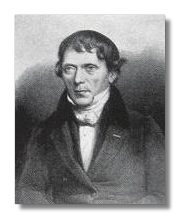
The Internet's Premier Classical Music Source
Related Links
-
Find CDs & Downloads
Amazon - UK - Germany - Canada - France - Japan
ArkivMusic - CD Universe
Find DVDs & Blu-ray
Amazon - UK - Germany - Canada - France - Japan
ArkivMusic-Video Universe
Find Scores & Sheet Music
Sheet Music Plus -
Search Amazon
Recommended Links
Site News
The String Quartets of Anton Reicha
Second Sounding

Rejcha to the Players
a monologue
by Ron Drummond
"These abrupt harmonic shifts, these 'unprepared' modulations as you call them: why must the preparation come before the modulation and not after, hmm? We can only play the music, we can only hear the music, sequentially, linearly, but as composers we can – indeed we must – hold all of the musical elements in mind simultaneously, so that all melodic and harmonic complexes occurring in the course of the movement shed light on each and every bar in it, every chord, every note, you see? Now if you prepare carefully for a modulation, when the modulation comes it is only our memory of the preparation that makes it satisfying, though granted the memory is immediate. So why not play with our memories? Why not jumble it up a bit? Make a puzzle. You might not say 'Ah ha!' when some far-flung phrase suddenly makes sense of a modulation heard much earlier, but you will feel it. Like déjà vu – a sense of sudden familiarity that is itself strange. A paradox, yes? What is familiar is comfortable, yet when we come upon it when we don't expect to, it makes us uncomfortable, so we are both comfortable and uncomfortable at the same time. And what happens? It raises the hair on the back of the neck. It is like being in a strange city and turning a corner and coming upon your favorite pastry shop, krullers and coffee meeting you – "and he gathers in the air with his hands, draws it towards his nose, breathes deep, exhales a long "Ahh" of satisfaction – "So. The music. One dislocation after another. The coach carrying you to that far city breaks down not once but thrice en route. When you arrive, a thief lifts your wallet, taking the last of your money – a mere pittance. All this happened to me, as you know, when I arrived in Vienna. If not for Papa Haydn, I would have starved. So, on that journey, as in this music, there is one abrupt change after another, until finally we reach that point where we turn the corner and there is the pastry shop – not, of course, the one we know so well, but one so much like it as to bring tears to our eyes. Now, as you play each part of this musical puzzle, you must play it as if it will carry on all the way through to its final resolution without interruption, you see? You must not in any way anticipate the interruption, the sudden change, so that when the change comes it is that much more abrupt, more unexpected. And, contrariwise, in playing the new section, the one that interrupts the old, you must not play it as though it were an interruption, no no: play it as though you've been playing it all along, and we just happen to have picked it up, almost mid-phrase as it were. So that, when the parts of my thematic puzzle finally begin to join together, the sense of familiarity and the sense of strangeness are both the stronger, and hence the more eery. Ahh. I can smell the coffee, I tell you! Goosebumps, Pavel! Goosebumps! Now, from the top, gentlemen, shall we? From the top."
Copyright © 2000 by Ron Drummond.
Back to The String Quartets or
back to the Reicha Page.













